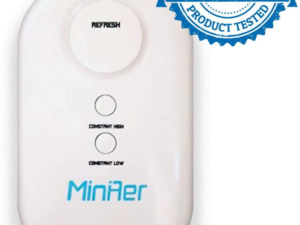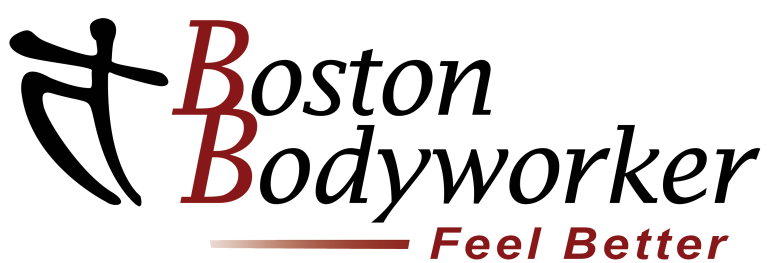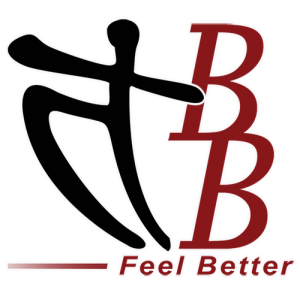The Power of Suggestion
We have all heard the term “Placebo”. A placebo is a treatment that decreases symptoms only because the client imagines a benefit, not because the treatment itself has any effect. For example, a sugar pill can be a placebo that will improve a headache only if the person taking the pill has an expectation that it will provide benefit. The placebo effect is the physiological process by which expectations about a treatment cause changes in the brain that initiate an improvement in symptoms.
Well, the contrast to this is a “nocebo”. A nocebo causes negative changes in symptoms (e.g. more pain and reduced function) when there is an expectation that an otherwise harmless stimulus will cause harm. Consider the person who thinks that bending and touching their toes will cause them pain, because the last time they did this, it did. The chances of them experiencing discomfort are pretty high. Over time, they avoid this movement and essentially create the harm that they anticipated because they have not moved properly due to this nocebo effect in thinking. Think self-fulfilling prophecy.
Many think of placebo as a mind-body connection that is a mysterious process without explanation. But in fact, we have connections between abstract thoughts and the body all the time. However, we never logically conclude this in real time. If I think there is danger in a dark alley I’m approaching, than my heart begins to beat faster. If I am nervous before a presentation, my hands begin to sweat. These are all reactions to our own thoughts. It’s not magic. There is a connection.
Well, what if the effect of your care is a “nocebo”? The opposite of a placebo. A nocebo is a detrimental effect on health produced by psychological or psychosomatic factors such as negative expectations of treatment or prognosis. This type of effect actually occurs much more often than the placebo effect. A nocebo effect is often innocently injected into our daily lives or even into our rehabilitation models. As an example, if you go for an MRI and the doctor tells you that they see a bulging disc, you may start to feel more pain, even if the pain you feel has nothing to do with the MRI findings. However, what if they continued to tell you that there is poor correlation between back pain and MRI findings? This can change the way you take in that information. If your therapist tells you that your hamstrings are tight, you may start to shorten your stride or be concerned about the first minor twinge you feel in the hamstring the next time you think you are about to pull something.
Ultimately, what we are learning more and more is that how we think about an injury and how we are spoken to by professionals who we look to for comfort, can have as big of an impact on recovery as the treatment approaches themselves. How many of us have walked into a doctor’s office and seen a model of a spine with the disc sitting next to it? This is what people think happens to “slipped discs”. It’s not. Not even close. But that imagery has a huge impact on how someone who has a slipped disc, can feel. As a matter of fact, many you reading this right now may have a slipped disc, but not even be aware of it. Again, follow the science. Correlation does not equal causation. We must all, professionals and patients, reshape the words we use to express what we are experiencing. This goes a long way in moving past problems related to pain and trauma in our lives.
Ready to #feelbetter?
You're just a click away from a wicked good massage!
-

60 Minute Massage Gift Card
$170.00 Add to cart -

90 Minute Massage Gift Card
$255.00 Add to cart -

Mini Aer Small Room Air Purifier
$149.00 Add to cart -
Sale!

Thera-Pearl Sports Pack/Hot Cold
Original price was: $14.99.$12.99Current price is: $12.99. Add to cart -

3 Somadome Sessions Gift Card
$135.00 Add to cart -

TheraBand CLX Connective Loop
$14.99 Select options -

6 Somadome Sessions Gift Card
$270.00 Add to cart -
Sale!

Biofreeze
Original price was: $14.99.$12.99Current price is: $12.99. Add to cart
Please Pass the Mustard
I’m going to go way out on a limb and guess that the last time you had a leg cramp your immediate reaction was to either stretch it, rub it, ice it or a combination of any of these responses. What if I told you that you should eat some yellow mustard for an almost…
Read MoreCheers to More Energy, Mental Clarity and Focus in 2015!
The following post is contributed by Anne Turnbull. Ann is a global business development leader with Max International, a company in the forefront of glutathione research and development. She is a frequent presenter to audiences in Canada, US and Africa and is passionate about spreading the word about the importance of glutathione for good health.…
Read MoreWake Up and Smell the Coffee
Do you recall the days in college that you would brew a pot of coffee to get through the occasional all nighter? Today, you have an endless supply of vices to curb that ‘energy fix’ we all crave. From Red Bull to Death Wish coffee (yes, that’s an actual brand), you can all get your…
Read MoreRunning is as easy as 1-2-3
There are two kinds of runners in the world; those who love it and those who don’t. I am definitely the latter of the group. However, the one thing they all have in common is, you guessed it, running. Regardless of whether you are enjoying your time on your run or not, we all know…
Read MoreHead Games
To paraphrase the great Yogi Berra; Running is 90% physical and the other half is mental. No one ever claimed to understand the old Yankee skipper, but we knew what he was attempting to say when he was discussing the ability to master the game of baseball. The same holds true with running (and many…
Read MoreWhat’s the Scoop on your Poop?
Being the father of two little girls, I know I have my work cut out for me. I have come to accept that there are lessons that I can teach my children and there are others lessons they will simply have to learn through personal experience. One of the lessons I constantly remind them of…
Read MoreYour Referrals Can Be A ‘Real’ Pain
No, I don’t mean the favor of your referrals of friends and family. We LOVE to get those. Today I want to talk about a type of pain known as ‘referred pain’. Referred pain is something that all of us have experienced at one time or another, yet may not have known what was happening.…
Read MoreWhat are Shin Splints?
What are Shin Splints? We treat a lot of different conditions at The Boston Bodyworker, ranging from general stress and fatigue to chronic pain. One of the more popular complaints we get from our running population is shin splints. If you have ever had them, you know how uncomfortable the pain can be and how…
Read MoreLet’s Talk About Sex!
There are three areas of conversation that we are told too avoid at all cost while in the treatment room; sex, politics and religion. These subjects are clearly based upon ones personal opinions and beliefs and are rarely needed to provide sound clinical outcomes in massage therapy. Today, I am making an exception. New research…
Read MoreTips on “That” Tape
Over the past year or so, we have seen a heightened interest in “that cool looking tape” otherwise known as kinesiology tape. The tape has become more and more popular and is now even being sold in places like Target and City Sports. To weekend warriors, success with this new tape has been a bag…
Read More
